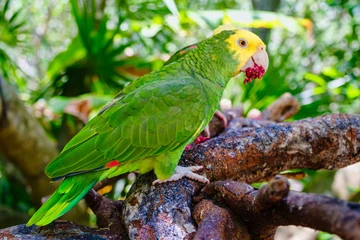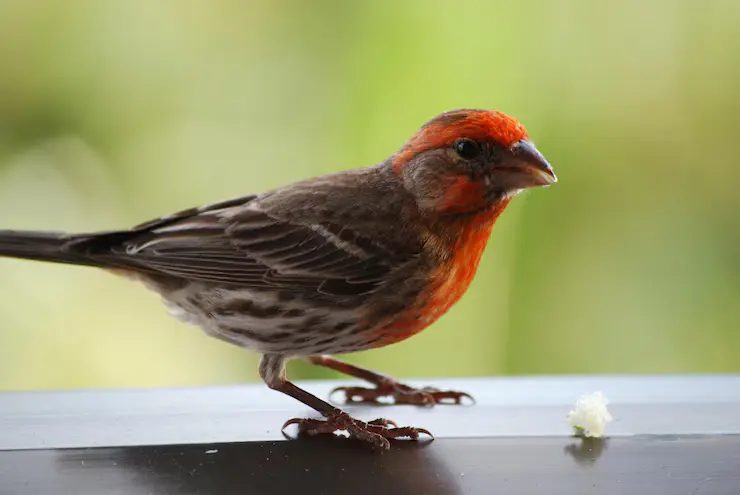Bird Health Care Hospital: Best Happy Proven Avian Recovery Tips
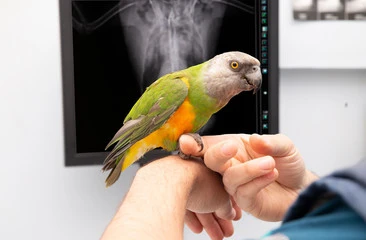
That panicked fluttering in your chest? It’s not just your heart racing. It’s that moment your feathered companion perches listlessly, refuses their favorite treat, or lets out an uncharacteristically weak chirp. Birds, masters at hiding illness, often show subtle signs until conditions become critical. When “hoping they bounce back” isn’t an option, a specialized bird health care hospital becomes your beacon of hope. Unlike general veterinary clinics, these sanctuaries of avian medicine offer the expertise, technology, and compassionate focus essential for your delicate pet’s survival and thriving. This isn’t just vet care; it’s a partnership dedicated to giving your beloved bird the longest, healthiest life possible.
Table of Contents
Why Avian Hospitals Are Non-Negotiable for Bird Owners
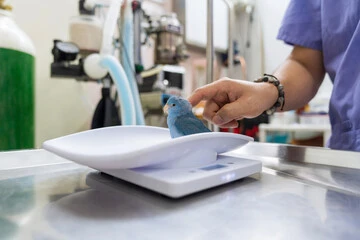
Birds possess radically different anatomies and physiologies compared to cats and dogs. Their rapid metabolism means illness progresses quickly. Their respiratory system is uniquely sensitive. Even routine procedures require specialized knowledge to avoid fatal complications. Gone are the days of crossing fingers at a general practice. Comprehensive avian hospital services are designed specifically for the unique needs of:
- Fast Metabolisms: Conditions deteriorate rapidly; early intervention by experts is critical.
- Sensitive Respiratory Systems: Special anesthesia, oxygen therapy, and sterile environments are mandatory.
- Unique Diseases: Psittacosis, PBFD (Beak and Feather Disease), avian gout – these require specific diagnostic and treatment protocols.
- Behavioral Nuances: Stress management techniques are vital, especially for easily frightened prey animals.
Key Takeaway: Relying on a general veterinarian for serious avian illness is like asking a pediatrician to perform heart surgery. Specialization saves lives.
Inside a Premier Bird Health Care Hospital: Essential Services Unveiled
Stepping into a dedicated avian hospital, you enter a world focused entirely on feathered patients. Beyond a standard “bird vet”, expect these vital services:
A: Advanced Diagnostics & Laboratory Testing
- Digital Radiography (X-rays): Essential for spotting tumors, egg binding, fractures, internal organ issues, and ingested foreign bodies. Birds need special positioning techniques.
- Avian-Specific Blood Panels: Interpreting parrot bloodwork requires specific reference ranges; what’s ‘normal’ for a dog is often dangerously abnormal for a bird.
- Microbiology & PCR Testing: Identifying bacterial, fungal, or viral infections (like Psittacosis or Avian Bornavirus) requires specialized labs and expertise.
- Endoscopy: Miniature cameras allow internal examination of air sacs, lungs, crop, and gastrointestinal tract for diagnostics and biopsies.
B: Medical Treatment & Critical Care Beyond Basics
- Fluid & Nutritional Therapy: Tailored IV or subcutaneous fluids to combat dehydration, alongside specialized critical care formulas fed via syringe or crop tube.
- Medication Administration & Monitoring: Correct dosing for tiny patients, safely administering drugs (often via injection or oral syringe), and monitoring efficacy.
- Chronic Disease Management: Expert care for conditions like Fatty Liver Disease, Atherosclerosis, Psittacine Beak and Feather Disease (PBFD), or renal insufficiency.
- Respiratory Support: Nebulization therapy to deliver medication directly into lungs, oxygen chambers.
- Parasite Control: Safe treatment protocols for mites, lice, and internal parasites.
C: Bird Surgery: Precision in Practice
Unlike standard veterinary surgeries, avian procedures require microscopes and specialized instruments due to tiny anatomies. Reputable avian hospitals excel in:
- Soft Tissue Procedures: Tumor removal, salpingotomy (egg removal), crop surgery, exploratory laparotomy, mass excisions.
- Fracture Repair: Setting broken bones with tiny pins, wires, or external coaptation. Delicate wings require expert stabilization.
- Beak and Talon Repair: Correcting deformities, trimming overgrown beak cores, addressing injuries.
- Foreign Body Removal: Retrieving ingested toys, seeds, or other hazards from the crop or intestines.
Essential Avian Surgery Considerations Table:
| Consideration | Why It’s Critical in Bird Surgery | How a Specialist Hospital Ensures Safety |
|---|---|---|
| Anesthesia | Birds are highly sensitive; overdose risk is significant. | Isoflurane/Seboflurane gas protocols with constant patient monitoring (ECG, pulse ox, temperature control). |
| Heating Support | Hypothermia under anesthesia can be fatal quickly. | Heated surgery tables and incubator recovery spaces. |
| Sterile Technique | Tiny size = higher infection risk relative to body mass. | Rigorous protocols matching human surgical environments. |
| Post-Op Pain Relief | Birds mask pain; inadequate relief delays recovery. | Multi-modal pain management strategies tailored to species/severity. |
| Blood Loss | Minimal blood loss can be catastrophic in small birds. | Meticulous surgical technique; blood typing/transfusions available. |
D: Emergency & Critical Care on Avian Time
Avian emergencies happen fast – night, weekend, holiday. Premier hospitals offer:
- Dedicated ER hotlines.
- 24/7 or on-call critical care (check specific hospital availability).
- Trauma support for accidents, punctures, attacks.
- Toxicity management (Teflon poisoning, heavy metal).
- Emergency stabilization: oxygen, warming, fluids.
E: Wellness & Preventative Care: Your Shield Against Illness
Don’t wait for crisis mode! Proactive care is the bedrock of disease prevention:
- Avian-Only Wellness Exams: Annual or bi-annual check-ups detecting subtle early signs of issues via weight tracking, physical exam, fecal tests, possible blood work.
- Specialized Nutrition Counseling: Formulating species-appropriate diets to prevent deficiencies (Vitamin A, Calcium) or obesity.
- Behavioral Consultations: Addressing feather destructive behavior, aggression, or vocalization issues where underlying medical causes might exist.
- Certificates & Pre-Purchase Exams: Ensuring new birds are healthy before joining your flock.
The Crucial Role of Avian Board Certification: Truly Expert Care
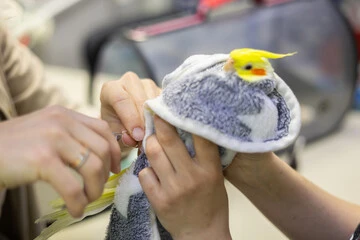
Vets interested in birds are good; board-certified avian health specialists are the gold standard.
- Training: Requires years beyond vet school: internship + specialized residency focused solely on avian/exotic medicine and surgery under experts.
- Certification: Rigorous exams administered by the American Board of Veterinary Practitioners (ABVP – Avian Practice) or ECAMS in Europe.
- Experience Focus: They handle complex cases daily and have access to cutting-edge research and protocols.
- Advanced Techniques: Proficient in high-level diagnostics, intricate surgeries, and critical care management.
When to Seek Out a Specialist Immediately:
- Difficulty breathing/wheezing/open beak breathing
- Obvious injury (bleeding, fracture, wound)
- Seizures, severe depression, paralysis
- Significant vomiting/regurgitation; blood in droppings
- Sudden inability to perch, weakness, fluffed up constantly
- Suspected toxic exposure
Preparing for Your Visit: Reducing Stress for Everyone
Make the visit smoother and less stressful:
- Call Ahead: Explain the problem; ask about fasting needs (often needed for certain tests) or paperwork.
- Minimize Escape Risk: Use a secure, small carrier (not a cage!). Cover partway with a light cloth to reduce visual stress. Remove perches or large toys inside for emergency trips.
- Gather Info: Note symptoms, duration, any changes in food/water/droppings/behavior. Bring current diet details.
- Bring “Comforts”: A familiar small perch inside the carrier or a favorite quiet toy if safe to do so. Avoid seed piles – vets need to see droppings clearly on carrier paper.
- Recent Droppings: Bring a fresh sample (less than 30 mins old ideally) on non-absorbent paper or in a sealed plastic bag.
- Stay Calm: Your bird senses your anxiety. Try deep breaths.
Protecting the Flock: Biosecurity & Disease Prevention
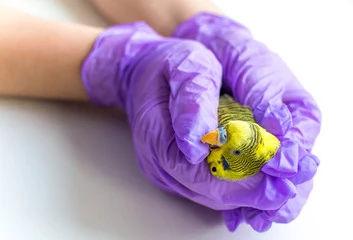
Top hospitals are vigilant about zoonotic diseases like avian influenza. Measures include:
- Strict Isolation Protocols: Separate respiratory wards/airflow for suspected infectious cases.
- Superior Sanitation: Veterinary-grade disinfectants used rigorously between patients.
- Staff PPE: Use of gloves, masks, gowns, and dedicated equipment for infectious cases.
- Client Communication: Guidance on quarantine procedures for new or sick birds at home.
Drawing on resources like the CDC’s Interim Guidance for Infection Control ensures both human and avian safety.
Bird Health Care Hospital FAQs: Your Quick Guide
Q1: How do I find a reputable bird health care hospital near me?
A: Search “avian veterinarian” or “bird specialist vet hospital.” Check if they have ABVP (Avian) certified vets. Ask local bird clubs or rescue groups. Review websites focusing explicitly on birds.
Q2: Does pet insurance cover avian hospital services, including surgery?
A: Many exotic pet insurance plans cover accidents and illnesses. Crucially, check coverage specifics for birds, look at surgery/annual limits, and confirm which hospitals qualify. Pre-existing conditions are typically excluded. Get a quote before you need emergency care.
Q3: My bird needs complex bird surgery. Is there a high risk?
A: All surgery carries inherent risks. However, board-certified avian surgeons possess advanced training, proper equipment, and specialized anesthetic protocols specifically designed for birds, significantly improving success rates. Demand pre-op diagnostics (bloodwork, radiographs) and discuss risks candidly.
Q4: Are avian hospitals significantly more expensive than normal vets?
A: Costs are usually higher due to specialized staff, advanced equipment, and unique medications/diets. However, accurate diagnosis and effective treatment often save money long-term by avoiding prolonged illness, incorrect treatments, or preventable tragedies. Ask for estimates upfront.
Q5: What’s the key advantage of a dedicated bird health care hospital over a general vet that “sees birds”?
A: Specialized expertise, facilities, experience handling complex cases daily, immediate access to species-specific resources, and staff calibrated to avian behaviors and emergencies dramatically improve outcomes during critical situations.
Partnering for Lifelong Wellness
Finding a premier bird health care hospital staffed by dedicated bird health specialists isn’t just reacting to illness – it’s an investment in preventative peace of mind. It means understanding that when respiratory distress hits, a blockage shows, or a routine check-up uncovers hidden disease, your feathered companion has access to the gold standard of care. Knowledgeable avian staff practicing sophisticated diagnostic and surgical techniques offer proactive wellness planning to forestall problems and expert intervention when crises strike. Your proactive choice in healthcare partners fundamentally shapes your bird’s longevity and quality of life.
Don’t wait for the first signs of trouble. Start building your bird’s healthcare team today. Explore our comprehensive guides on routine bird wellness or delve deeper into recognizing avian illnesses. Have you experienced the critical difference of an avian specialist hospital? Share what saved your bird’s life in the comments below! Your insight could guide another worried owner to timely, life-saving expertise.


